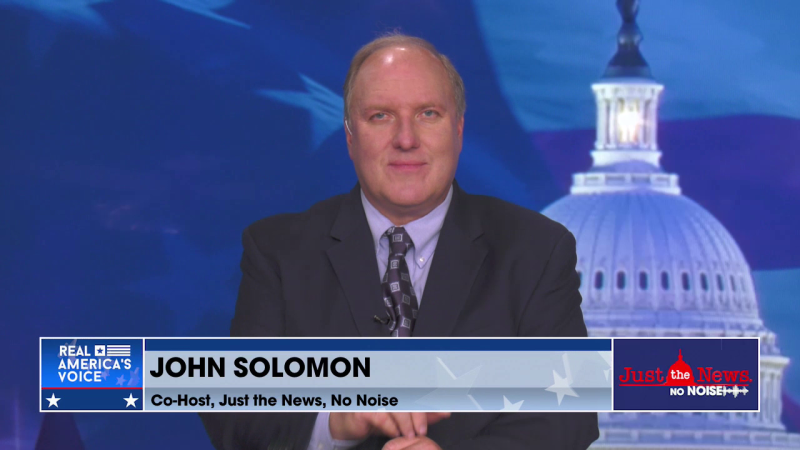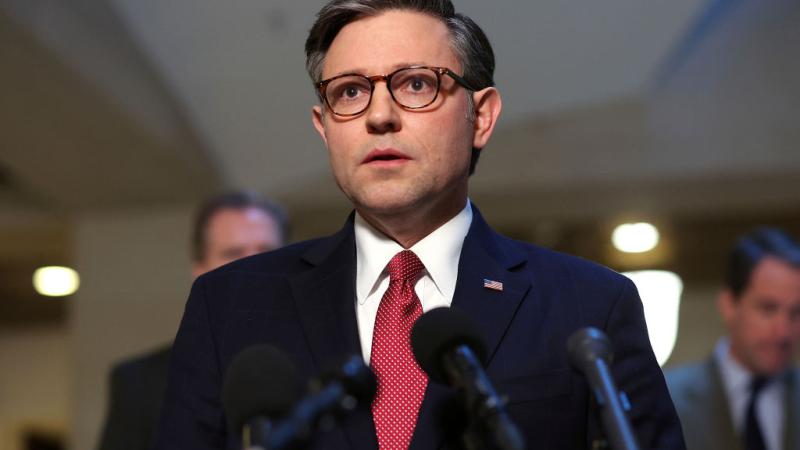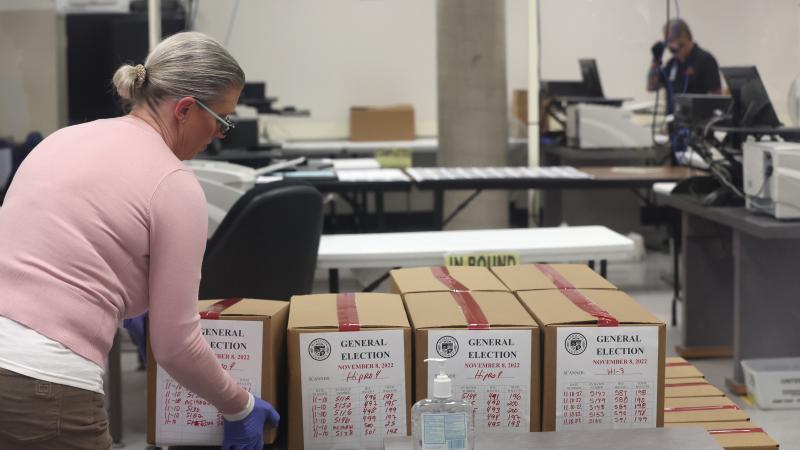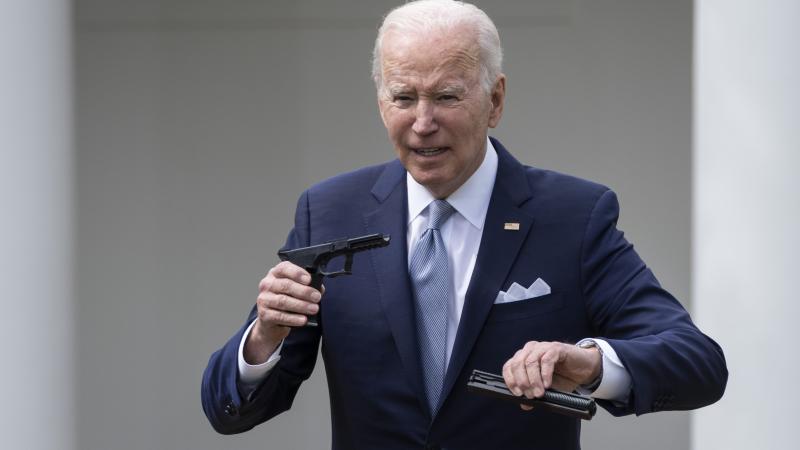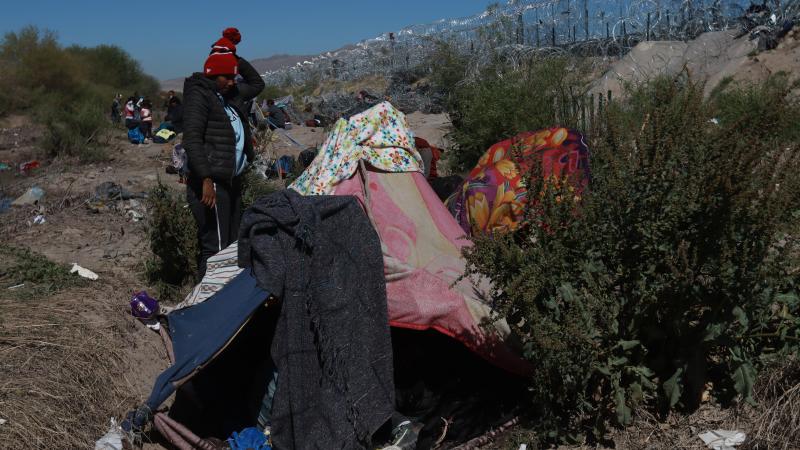Heart problems in vaccinated students trigger medical, legal scrutiny of campus COVID mandates
"Even a slight risk of a serious vaccine adverse reaction could tip the benefit-risk calculation" for young people, medical professors say.
As the government reviews several hundred reports of heart inflammation in young people following COVID vaccination, high-profile medical and legal scholars are calling on colleges to scrap their COVID vaccine mandates, calling them unnecessary and potentially harmful to students.
University of California-Irvine medical ethicist Aaron Kheriaty and University of Notre Dame law professor Gerard Bradley went so far as to invoke the post-Nazi Nuremberg Code in urging universities to abandon their mandates, in a Wall Street Journal op-ed this week.
Though many universities already offer exemptions based on medical history and religious objections, the professors suggest two more: the emergency use authorization (EUA) status of the COVID vaccines and widespread natural immunity.
Younger adults and children have "extremely low" risk of mortality from COVID, epidemiologists Martin Kulldorff of Harvard Medical School and Jay Bhattacharya of Stanford Med wrote in an op-ed for The Hill Thursday.
(Kulldorff, a pioneer in vaccine safety, didn't share the op-ed on his newly unlocked Twitter feed. "Twitter does not allow vaccine scientists to freely discuss vaccines, but you can find it on my LinkedIn and Gab accounts," he tweeted Thursday, referring to his monthlong suspension for questioning the protective power of masks.)
"Even a slight risk of a serious vaccine adverse reaction could tip the benefit-risk calculation, making the vaccine more harmful than beneficial," Kulldorff and Bhattacharya wrote, accusing universities with mandates of ignoring "basic benefit-risk analyses, a staple of the toolbox of scientists."
Benefits versus risks of mRNA vaccines (Pfizer-BioNTech and Moderna) for adolescents and young adults are on the agenda for this week's meeting of the Centers for Disease Control and Prevention's Advisory Committee on Immunization Practices. It will also tackle reports of myocarditis developing after vaccination. (Originally scheduled for June 18, the meeting was moved to June 23-25 on account of the new Juneteenth federal holiday.)
Carlos Del Rio, executive associate dean at Emory University medical school's affiliated hospital, tweeted that the CDC committee could recommend a single dose of mRNA vaccine for young people, forgoing such vaccines altogether or using an adenovirus-vectored vaccine.
Even the American Medical Association (AMA) pushed back on COVID vaccine mandates for the time being at a "special meeting" of its house of delegates Wednesday.
In a press release it did not share on Twitter, the group urged institutions including schools to reject mandates until the vaccines receive "full approval" from the FDA through a Biological Licenses Application. In doing so, it rejected the EUA rationale used by colleges to justify mandates for students.
"Individuals subject to the mandate [should] be given meaningful opportunity to voluntarily accept vaccination," and its implementation should "not exacerbate inequities or adversely affect already marginalized populations," the AMA said, alluding to racial disparities in vaccine hesitancy.
It's not evident that universities with mandates plan to inform students of the potential risks their age group may face from the COVID vaccines.
Northwestern University failed to mention that a student who died last week suddenly developed heart problems after taking her second Moderna shot. It told the Daily Northwestern that 19-year-old Simone Scott died of "pneumonia-related issues" following an emergency heart transplant, but her parents told journalist Alex Berenson they believe the vaccine played a role and was a "coincidence that is too big to ignore."
A Brown University epidemiologist who has closely followed post-vaccination myocarditis reports and reviewed Berenson's report on Scott's recent history of treatment told Just the News he would attribute her death to "vaccine-induced myocarditis."
The freshman suffered "serious, near fatal myocarditis post C19 vax with all other plausible causes of that fulminant [sudden and severe] myocarditis ruled out" and died shortly after her transplant, Andrew Bostom wrote in a Twitter direct message.
"In other words, her failure to 'engraft' contributed to her death from the severe complications of her rapidly progressive myocarditis," he said. "The fulminant presentation IS unusual, and let's pray VERY uncommon."
A spokesperson for Northwestern Memorial Hospital, where Scott was treated and died, referred Just the News to the university when asked what besides the vaccine could have contributed to Scott's sudden death. He declined to confirm Berenson's claim that her doctors have "no other explanation" following a pathological examination of her original, removed heart.
Report rate 3x > than high end estimate
More than 500 colleges require COVID vaccination for students, according to a Chronicle of Higher Education tracker, though some states have banned the mandates. Gov. Doug Ducey recently overturned Arizona State University's strict rules for unvaccinated students via executive order.
Myocarditis has been flagged as a potential result of COVID vaccination at least since February, when Italian researchers submitted a case study on a newly vaccinated 30-year-old. Their paper completed peer review a month ago and was published in the Canadian Journal of Cardiology last week.
But the risk did not get mainstream media credibility until a June 10 CDC presentation to the Food and Drug Administration's Vaccines and Related Biological Products Advisory Committee.
Though they accounted for only 9% of administered mRNA vaccines, 12-24 year-olds represented more than half (277) of myocarditis and pericarditis reports through May 31, according to Tom Shimabukuro of the CDC's Vaccine Safety Team.
That's nearly three times the high end of the "expected" report rate, based on "background incidence rates of medical conditions for use in safety assessment of COVID-19 vaccines."
Cody Meissner, chief of pediatric infectious diseases at the Tufts Children's Hospital in Boston, said after the presentation that "it is hard to deny that there's some event that seems to be occurring in terms of myocarditis," NBC News reported.
Image

Reports of heart problems following vaccination for young people
CDC
University COVID vaccine mandates are "unprecedented — and unethical," Kheriaty and Bradley, the medical ethicist and law professor, wrote in their op-ed this week. "Never before have colleges insisted that students or employees receive an experimental vaccine," which a court struck down when the U.S. military forced soldiers to be "guinea pigs" for an anthrax vaccine.
They cited the increased risk of heart inflammation for college-age people and the "huge number of students" who have natural immunity from previous infections. Recovered patients were "deliberately excluded" from clinical trials, "thus subjecting them to novel experimental risks."
The professors scoffed at university justifications that rely on making the community "feel safe" enough to reopen, which is a "psychological placebo to those who don't care enough to consider basic scientific facts."
Bradley and Kheriaty told Just the News they couldn't immediately answer questions about the legal risks colleges could face from retaining mandates, how their in-house lawyers could have shaped mandates, and why medical ethicists did not have a louder voice on mandates.
"This is a mess, generated by Administrators whose unfounded fears of liability and desires for virtue-signaling have put them on a collision course with science and the law," Catholic University of America law professor Robert Destro wrote in an email to Just the News.
He has previously argued for challenging college vaccine mandates on health privacy and disability grounds, and said the issues raised by Kheriaty and Bradley are also valid.
"The data are not clear about risks … the benefits of a broad mandate are unclear," and the vaccines are "contraindicated" for recovered people, he said. If data on alternative treatments such as Ivermectin had been available when the vaccines were first reviewed, "it's not clear that EUA would have been available."
College mandates "harm public health" because the vaccines don't clearly benefit young people, and "rare but serious adverse reactions" could emerge in a few years, Kulldorff and Bhattacharya argue.
Myocarditis and blood clots are known risks for young people, and for those already recovered vaccination "simply adds a risk, however small, without any benefit," they wrote in The Hill.
The Great Barrington Declaration coauthors responded to Just the News queries but didn't specifically answer how colleges should respond to Simone Scott's death at Northwestern.
"Since the risk of a severe outcome from COVID is so low for the young, almost any chance of a serious adverse event from the vaccine militates against taking the vaccine," Bhattacharya wrote in an email. "Given the emerging evidence on serious adverse events like myocarditis ... universities should rethink their mandates."
Unvaccinated students pose "little to no additional risk" to vaccinated faculty, he said.
"For younger people with a very low risk of COVID mortality, we do not yet know whether the benefits outweigh the risks," Kulldorff wrote. "Under such circumstances, it is unethical for universities to mandate COVID vaccination. Any subsequently detected problems with a mandated vaccine will erode trust not only in that vaccine but also in other critically important vaccines."


